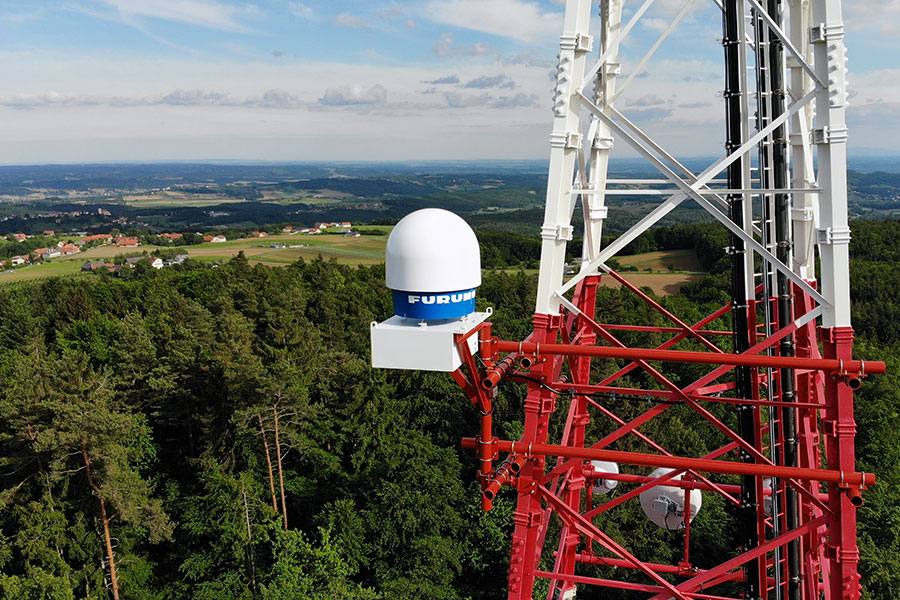Mit dem WegenerNet Klimastationsnetz hat das Wegener Center für Klima und Globalen Wandel der Universität Graz vor 15 Jahren ein weltweit einzigartiges Projekt gestartet: Über 150 Messtationen in der südoststeirischen Region Feldbach, die jeweils maximal zwei Kilometer voneinander entfernt sind, zeichnen im Fünf-Minuten-Takt Daten zu Temperatur, Niederschlag und weiteren wichtigen Klimagrößen auf. Diese von keinem anderen Langzeit-Stationsnetz erreichte räumliche und zeitliche Dichte macht das Projekt für die Region wie auch für die internationale Forschung besonders bedeutungsvoll. Am 1. Juli 2022 feiert das WegenerNet sein 15-jähriges Bestehen in Feldbach mit einem vielfältigen Programm für die ganze Familie.
Exkursion, Experimente und Vorträge
Ab 10 Uhr bieten verschiedene Stände Einblicke in aktuelle Themen rund um den Klimawandel, samt spannender Experimente. Von 10 bis 13 Uhr können Interessierte nach Voranmeldung an einer Exkursion zur WegenerNet-Zentralstation Raabtal teilnehmen, die auf einer luftigen Plattform in 27 Meter Höhe das Wettergeschehen beobachtet. Ab 14.30 Uhr informieren WissenschafterInnen der Universität Graz in Kurzvorträgen, was das WegenerNet der Forschung bringt und auf welche Wetterextreme sich die Südoststeiermark in den kommenden Jahrzehnten voraussichtlich einstellen muss.
3D-Freiluftlabor für Klimawandelforschung
Neben dem 15-Jahr-Jubiläum bietet das neue 3D-Freiluftlabor für Klimawandelforschung einen weiteren Anlass zum Feiern. Die Einrichtung wird im Rahmen des Festaktes am Abend offiziell eröffnet. „Bisher wurde Extremwetter im WegenerNet nur am Boden erfasst, nun lässt es sich auch in seiner Entstehung und seinem Verlauf in 3D beobachten und erforschen“, erklärt WegenerNet-Leiter Gottfried Kirchengast, auf dessen Initiative das Klimastationsnetz im Jahr 2007 startete und ab 2020 das Freiluftlabor eingerichtet wurde. Dieses besteht aus drei Anlagen: einem Wetterradar zur Beobachtung von Regen, Hagel und Windturbulenzen bei Niederschlagsereignissen; dem StarNet, das Signale von sechs GNSS (Global-Navigation-Satellite-System)-Stationen zur Messung des Wasserdampfgehalts der Atmosphäre nützt; und einiger Troposphären-Profiling-Radiometer zur Messung des Luftfeuchte- und Temperaturverlaufs von der Erdoberfläche bis in zirka zehn Kilometer Höhe sowie des Flüssigwassergehalts der Wolken und der Wolkenverteilung.
Das WegenerNet wird vom Bundesministerium für Bildung, Wissenschaft und Forschung sowie vom Land Steiermark und der Stadt Graz gefördert und von weiteren Partnern unterstützt. Das Datenportal des WegenerNet ist allgemein zugänglich und ermöglicht einen interaktiven Zugriff, optimiert auch für mobile Endgeräte >> www.wegenernet.org
>> weitere Informationen zur Jubiläumsveranstaltung und zum WegenerNet
